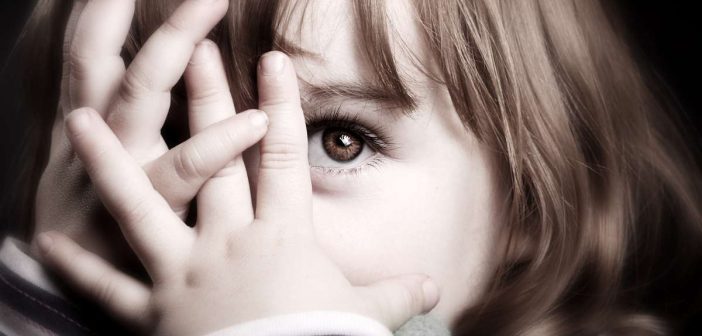“Come on Kate, don’t be shy. Say hello.” Said Kate’s mother. Six-year-old Kate was now hiding behind her mother’s legs. It is a very common scene: a mother cajoling her reserved child to be social and the child clamming up further. Shyness is not a flaw but a personality trait. Shy people are generally quiet and reserved because they like to listen to and observe people. Imagine what the world would be like if all of us were talkers without these attentive listeners?
Many people equate shyness with poor self-esteem. However, most shy people have a concrete self-concept and esteem, are thoughtful and empathetic, and have a vibrant imagination. A shy child with healthy self-esteem will make eye contact, is polite, and is generally happy. You can, however, boost the social skills of your shy child.
- Do not push: A shy child should be allowed to warm up to strangers at their own pace. The more you push, the more they will retreat into their cocoon of comfort.
- Prepare them: Most shy children struggle in social situations because of anxiety. So prepare them for the situation. For instance, if it is a birthday party, you could take your child to meet the birthday boy/girl and his/her parents a day before, so your child is familiar with them. If the child knows what to expect in a social situation and has familiar faces, he/she is likely to cope better.

- Find a good preschool: Find a preschool that allows your child to get more individual attention. A teacher student ratio of no more than 1:7 is ideal. Work closely with the teacher to address any problems.
- Empathise: We all feel or have felt shy about something at some point of time. Let your child know how you overcame your shyness in a certain situation and how it benefitted you and made you happy. Tell them it’s OK to feel shy but it’s important to overcome it.
 Feedback is helpful: If your child mustered up the courage to greet someone, praise them. Let them know how proud you are and how good that other person must have felt at being greeted so nicely. However, if he/she clammed up in a social situation help them work out the issue and discuss what he/she can try doing next time.
Feedback is helpful: If your child mustered up the courage to greet someone, praise them. Let them know how proud you are and how good that other person must have felt at being greeted so nicely. However, if he/she clammed up in a social situation help them work out the issue and discuss what he/she can try doing next time.- Teach them to be social: Sometimes, a child just lacks the skills to be social. You could guide them on ways to join a conversation. Better still, be a model outgoing parent. Remember children are great imitators. Although, there are instances when the parents are too outgoing and overshadow the child, unintentionally of course. So depending upon the situation, you could be more reserved so your child gets the chance to speak.
- Don’t ask for impromptu performance: We all are proud of our children. Maybe your son can play Bach beautifully or your daughter can dance like a ballerina. You may be trying to build your child’s confidence by praising them and asking for performance. Unfortunately, shy children may just run off to another room leaving you a tiny bit embarrassed. So respect their comfort level in performing in public and ask them if they would like to perform. Let them know in advance about your request. No surprises.
Shyness is an issue if it becomes an obstacle in your child’s development and makes him/her unhappy. Some children who have deep-seated anger and other issues hide behind the mask of shyness. They do not make eye contact and have behavioral problems. In these cases, you may need to delve into the issue that is bothering him/her. However, if your child is just a shy personality, embrace his/her nature. They may not become social butterflies but they can, with your guidance, grow up to have a happy social life.







